Overview of Working Group
WG5
Innovation for future agriculture
–satisfying both food production and environmental conservation
Food demand will certainly increase due to expanding global population. On the other hand, our environment for food production is deteriorating due to climate change, such as global warming, desertification, and depletion of natural resources. Therefore, the enhancement of agricultural production is a major global issue for our future.
We will discuss innovative solutions and MS goal(s) to satisfy both increase of agricultural production and environmental conservation on a global scale by integrating cutting-edge technologies such as AI, robotics, and biotechnology with use of natural organisms like soil microbes. These solutions also contribute to optimizing the entire process of food value-chain from breeding through agricultural production, distribution, to consumption.
- chair :
- NOGUCHI Noboru
Vice dean and Professor, Graduate School of Agriculture, Hokkaido University
- subchair :
- HASEBE Akira
Deputy Director, Food and Fertilizer Technology Center For The Asian and Pacific Region
Related examples of moonshot goals
- ・Full automation of agriculture, forestry & fisheries
- ・Elimination of food loss
- ・Harmonization agriculture and biodiversity
【Speakers】
As for the presentation materials, unauthorized reproduction and diversion are prohibited.
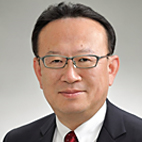
PROFILE
2017 – Current : Vice dean, Research Faculty of Agriculture, Hokkaido University
2004 - Current : Professor, Research Faculty of Agriculture, Hokkaido University
1997-2004 : Associate Professor, Graduate School of Agriculture, Hokkaido University
1990-1997 : Assistant Professor, Faculty of Agriculture, Hokkaido University.
HASEBE Akira Deputy Director, Food and Fertilizer Technology Center for the Asian and Pacific Region (FFTC)
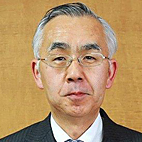
PROFILE
2018-at present : Deputy Director, Food and Fertilizer Technology Center for the Asian and Pacific Region (FFTC),
2016- 2018 : Vice-President (in charge of Environmental Sciences), National Agriculture and Food Research Organization (NARO)
2013-2016 : Vice-President, National Institute for Agro-Environmental Sciences (NIAES)
2008-2013 : Principal Research Director, National Institute for Agro-Environmental Sciences (NIAES)
2006-2008 : Principal Research Planning Director, Agriculture, Forestry and Fishery Research Council (AFFRC) Secretariat, Ministry of Agriculture, Forestry and Fishery (MAFF)
2003-2005 : Head of Organic Chemical Research Group, National Institute for Agro-Environmental Sciences (NIAES)
James Kuffner CEO, Toyota Research Institute – Advanced Development, Inc. (TRI - AD)

PROFILE
Dr. James Kuffner is the Chief Executive Officer at the Toyota Research Institute - Advanced Development (TRI-AD). Dr. Kuffner received a Ph.D. from the Stanford University Dept. of Computer Science Robotics Laboratory in 1999, and was a Japan Society for the Promotion of Science (JSPS) Postdoctoral Research Fellow at the University of Tokyo working on software and planning algorithms for humanoid robots. He joined the faculty at Carnegie Mellon University's Robotics Institute in 2002.
Dr. Kuffner is perhaps best known as co-inventor of the Rapidly-exploring Random Tree (RRT) algorithm, which has become a key standard benchmark for robot motion planning. He has published over 125 technical papers, holds more than 40 patents, and received the Okawa Foundation Award for Young Researchers in 2007.
Before joining TRI, Dr. Kuffner was a Research Scientist and Engineering Director at Google from 2009 to 2016. Dr. Kuffner was part of the initial engineering team that built Google’s self-driving car. In 2010, he introduced the term "Cloud Robotics" to describe how network-connected robots could take advantage of distributed computation and data stored in the cloud. Dr. Kuffner was appointed head of Google’s Robotics division in 2014.
Thomas P. Low Director of Robotics, SRI International

PROFILE
Thomas Low serves as the Director of the Robotics Programs at SRI International, of Menlo Park, CA. where he has worked for the past 35 years. He earned his BSME from UC Berkeley and MSME from Stanford University. Mr. Low's three and a half decades of technical innovation have resulted in 49 issued patents and publications in diverse fields of research, from biochemical processes to robot system design. Much of his career has been focused on effective telemanipulaton and robotically assisted surgery. He was as member of the development team that created the prototype da Vinci Robotic surgical system, and Google Verily’s new Verb Surgical platform. He led the development of the Taurus dexterous telemanipulation system for neutralizing improvised explosive devices. The Taurus is now being repurposed to support research activities related to remote trauma care. Recently, he led his team to create the world’s first fully autonomous humanoid robot capable of racing a motorcycle against top human riders. His Laboratory was responsible for the creation of Abundant Robotics, which has developed an automated, vision based apple harvesting system.
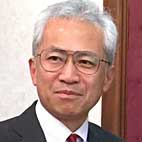
PROFILE
- Educational background
April, 1978, Entered Faculty of Agriculture, Kyoto University
Mar., 1982, Graduated from Kyoto University
April, 1982, Enter the Graduate School of Agriculture, Kyoto University
Mar., 1984, Graduated from the Graduate School of Agriculture, Kyoto University
BE: from the Department of Agricultural Engineering, Faculty of Agriculture, Kyoto Univ. in March, 1982.
ME: from the Department of Agricultural Engineering, the Graduate School of Agriculture in Kyoto Univ. in March, 1984.
Ph.D: from Kyoto Univ. in November, 1988 for "Agricultural visual sensor attached to manipulator end"
- Business experience
Jan.1, 1985, Assistant Professor, Faculty of Agriculture, Okayama University
April 1, 1991, Assistant Professor, The graduate school of Natural Science and Technology, Okayama University
April 1, 1993, Associate Prof. Field Science Center, Faculty of Agriculture, Okayama University
April 1, 1997, Associate Prof. Faculty of Agriculture, Okayama University
Jan. 5, 2000, Manager, Department of Technology Development, Ishii Industry Co., Ltd.
July 30, 2003, Director, Ishii Industry Co. Ltd.
(April 1 2004, Name of Ishii Industry Co. Ltd. was changed into SI Seiko Co., Ltd.)
Sep. 21, 2004, Technical Adviser, SI Seiko Co., Ltd.
Mar. 1, 2006, Professor, Faculty of Engineering, Ehime University
Sep. 1, 2007, Professor, Graduate School of Agriculture, Kyoto University
Up to Present
- Academic Society Activities
April 1, 2007-March 31, 2011, Editor-in-Chief of international journal of EAEF (Engineering for Agriculture, Environment and Food), AABAA
2013-2015, Editor-in-Chief of COMPAG (Computers and Electronics in Agriculture)
April 1, 2011-March 31, 2015, Kansai Branch Head of Japanese Society of Agricultural Machinery and Food Engineers
April 1, 2017-Present. President of Japanese Society of Agricultural Machinery and Food Engineers
Up to present
- Guest Professor or guest researcher at research institute
2007:浙江大学客座教授
2008: Guest Researcher: Ehime University
2010: Guest Researcher, Industrial Technology Center of Nagasaki
2015:西北農林科技大学客座教授,瀋陽農業大学Adjunct Professor
2016:新疆農業大学天山教授,中国農業大学Adjunct Professor
2019:華中農業大学客座教授
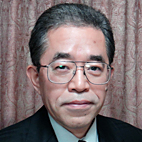
PROFILE
The University of Tokyo BSc. 1979 Agricultural Chemistry
The University of Tokyo MSc. 1982 Agricultural Chemistry
The University of Tokyo Ph. D. 1986 Agricultural Chemistry
1983-1990 : Research Associate at Department of Agricultural Chemistry, Ibaraki University, working on phylogeny of soybean bradyrhizobia.
1990-1996 : Associate Professor, at Department of Agricultural Chemistry, Ibaraki University, working on the involvement of rhiozbial production of plant hormone on legume nodulation.
1996-2001 : Professor at Institute of Genetic Ecology, Tohoku University, working on genetic diversity of soybean bradyrhizobia and diazotrophic endophytes.
2001- present : Professor at Graduate School of Life Sciences, Tohoku University, working on diversity and utilization of soybean bradyrhizobia and diazotrophic endophytes.
Morvarid Bagherzadeh Analyst, Policies in Trade and Agriculture, Organisation for Economic Co-operation and Development (OECD)
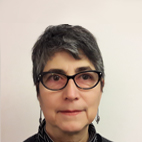
PROFILE
Morvarid Bagherzadeh is a researcher and policy analyst at the Organisation of Economic Cooperation and Development. She provides evidence based advice to policy makers to create “better policies for better lives.” Her recent projects include providing policy recommendations to strengthen agricultural resilience, identifying the determinants of agricultural innovation and more generally the evaluation of agricultural policies. She is also in charge of issues related to food loss and waste. Her most recent publications are: Innovation, Agricultural Productivity and Sustainability in Latvia and the Evaluation of the EU’s Common Agricultural Policy





